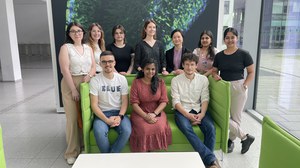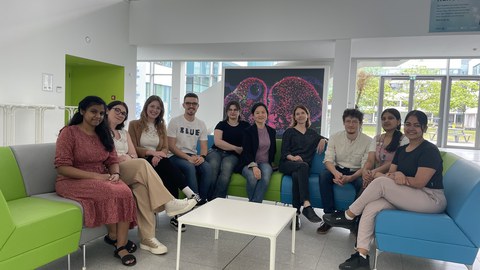Fuchs Group
Allogeneic hematopoietic stem cell transplantation (HSCT) is a potentially curative treatment for life-threatening hematopoietic disorders such as leukemia and lymphoma. However, despite improved conditioning regimens, graft-versus-host disease (GvHD) – an attack of patient tissue by immune cells within the graft - remains a major complication affecting every second transplanted patient. Frequent resistance to current treatment options makes GvHD the leading cause of premature non-relapse mortality in HSC recipients followed by infection. Our group develops novel individualized cell-based therapeutics to combat the unmet clinical need for efficient treatment of GvHD and viral infection after HSCT. We work in close collaboration with the Good Manufacturing Practice (GMP) facility of the Center for Regenerative Therapies Dresden (CRTD).
 © GMP Facility CRTD
© GMP Facility CRTD
Our research
Current research of our group shows that re-balancing tolerance in the new immune-system with an additional dose of stem cell donor-derived immune cells (Regulatory T cells, “Tregs”) can alleviate chronic GvHD-complications after transplantation. Generating this advanced therapy medicinal product (ATMP) is laborious and involves a second blood cell donation (“apheresis”), isolation and expansion of the cells under “Good Manufacturing practice (GMP)” conditions. Recently our group established a novel smart Treg manufacturing protocol based on an automated closed system that simplifies this procedure.
FUTURE PROJECTS AND GOALS
The aims of our research are:
- A randomized phase II clinical trial to test smart-produced Treg cells in early chronic GvHD
- Clinical translation of organ-targeted Treg
- Automated GMP production of antigen-specific T cells to treat viral infections in immune-compromised patients
- Adaptation of the smart manufacturing strategy to other immune cells used in cancer therapies
- Deep immunomonitoring of patients including flow- and mass cytometry (CyTOF), T cell receptor sequencing and single cell and RNA sequencing










